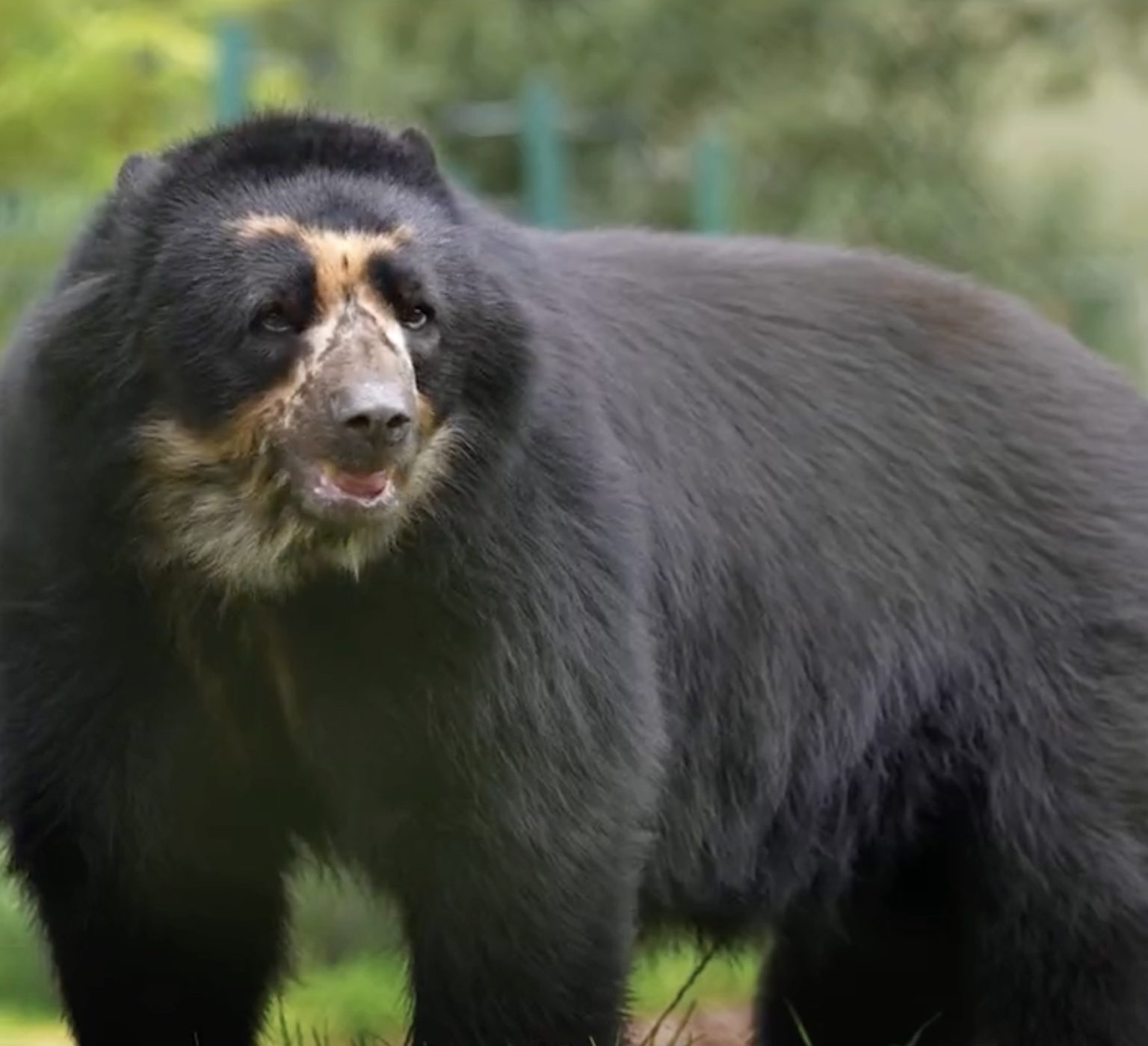In a remarkable development, a scarcely encountered bear, belonging to the same species as the beloved Paddington Bear, has made its way to the United Kingdom with a crucial mission – the preservation of its kind.
This extraordinary bear, christened as Oberon, affectionately known as Obe, is an Andean bear, a species presently classified as precarious by prominent wildlife conservation bodies.
Regrettably, the Andean bear confronts an alarming risk of vanishing entirely from our planet, with a mere 10,000 individuals enduring in their natural habitat.
On the 27th of September, a venerable ten-year-old Obe made its debut at the Chester Zoo, becoming the subject of fervent anticipation among conservationists.
The primary aspiration behind Obe’s arrival is to facilitate an amorous connection with Pacha, a young three-year-old bear residing at the same sanctuary, with the ultimate goal of augmenting their species’ dwindling population.
However, the anticipated introduction of the two bears is yet to occur, holding suspense in the air.
Obe is currently acquainting itself with its novel abode situated in Upton-by-Chester, Cheshire. It has been engrossed in acrobatic tree-climbing endeavors, seemingly adapting well to its surroundings.
Andean bears, distinguished by their distinctive circular aureate markings encircling their eyes, also possess a luxuriant and robust coat, in addition to powerful mandibles – attributes that equip them to withstand the unforgiving climatic rigors of their native Andean terrain.
The listing of the Andean bear as a vulnerable species can be attributed to a confluence of factors, including the pernicious impacts of climate change, rampant deforestation, and human-driven conflicts in South America.
It is worth noting that these Andean bears represent the sole bear species indigenous to the continent.
Intriguingly, Paddington Bear, who achieved worldwide fame, embarked on a cross-continental journey, traversing from Peru to the United Kingdom, mirroring the landscape of the Andes mountain range, which is the original homeland of this unique species.



